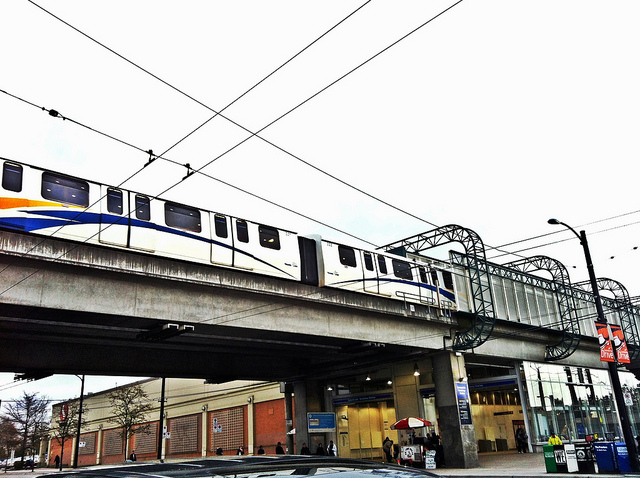Even if there is a Yes vote in the Metro Vancouver transit referendum much more will have to be done to reduce carbon pollution from transportation. The good news is that this will create good jobs right here in B.C.
Road transportation in Metro Vancouver is responsible for more than five million tons of greenhouse gas pollution, more than half of the region’s total. Global warming and ocean acidification are both caused by burning too much oil and other fossil fuels.
Interior communities in B.C. are already losing hundreds of jobs because of trees killed by the pine beetle, which is directly linked to rising temperatures. Sea water in B.C. is already so acidic that oysters often cannot reproduce. The biggest threat to livelihoods in B.C. is now carbon pollution from burning fossil fuels.
A Yes vote would be a significant step forward in terms of doing our part to reduce carbon pollution. It would also mean less sprawl onto farmland and therefore more food security at a time when drought in California farming areas has become the new normal due to global warming.
The plan being voted projects a stabilization of carbon pollution from transportation despite rapid population growth. However, we can do much better as there is considerable flexibility in the plan to enhance both pollution reduction and job creation.
Numerous studies show that improving public transit is a better job creator than building new and wider roads, and the same or lower overall transportation expenditure can produce more employment. For example, the B.C. Treasury Board estimates that a $1 million transit expenditure creates 21.4 jobs in BC, compared to 7.5 jobs for the same automotive expense and only 4.5 jobs in oil and gas.
Using much of the $200 million allocated in the plan to Major Road Network capital to create bus lanes and improve safety for pedestrians would have employment, health and environmental benefits. This choice is largely up to the municipalities where TransLink’s ‘Major Roads’ are located, so residents can influence these decisions in their own communities.
In Metro Vancouver, people spend about $9 billion every year to buy and operate private automobiles, including fuel costs. Even a small portion of this re-directed to things such as restaurant meals would have a substantial positive effect on regional employment. The opportunity for people to work less with lower personal transportation expenses is also an important social and economic benefit to consider. A transportation system that forces people to work excessive hours in order to pay for cars and fuel to get to work is no recipe for sustainable prosperity or a healthy society.
We also have the opportunity to create good jobs by changing how our buses are powered, by expanding the trolley bus network. Spending on fossil fuels, such as diesel fuel, has among the worst jobs return of any sector. In contrast, renewable electricity is one of the better ways of creating jobs. And those jobs would mainly be here in BC, which has very good renewable electricity potential.
Building new bridges and roads is a huge expense. In contrast, good maintenance and refurbishment of existing infrastructure produces more jobs, and those jobs are more likely to go to people who live in the region. Lower mainland residents can also influence provincial priorities for the better, such as by pushing for better transit and improved highway maintenance instead of the multi-billion dollar freeway bridge slated to replace the Massey Tunnel.
Younger people have shown that they are not very interested in jobs in the fossil fuel sector, in part because of ethical considerations around climate change. Everyone wants to be able to make a living doing something they feel good about, and governments have the opportunity to create many more good jobs people can feel proud of by making the right decisions about transportation infrastructure. But this won’t happen without vigorous and ongoing public involvement, which is even more important than a Yes vote in the transit referendum.
Eric Doherty is Tanker Free BC‘s Transportation Campaigner and the author of the new report Making the Most of the Transit Referendum: Transportation Investments to Create More Jobs and Reduce Pollution. The report is available at www.tankerfreebc.ca/transit_report
Photo: flickr/Roland Tanglao



